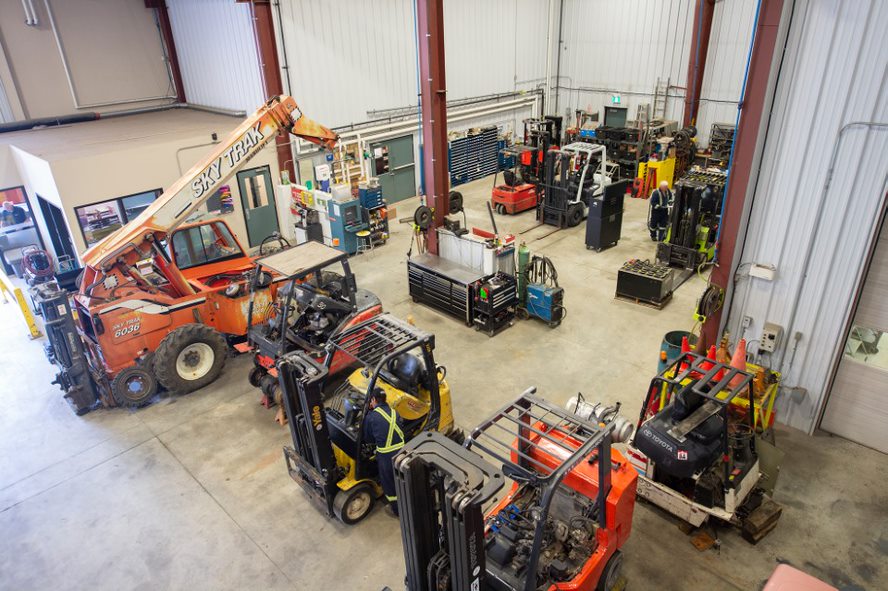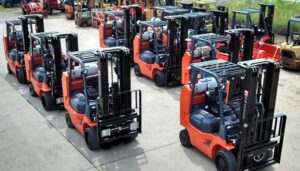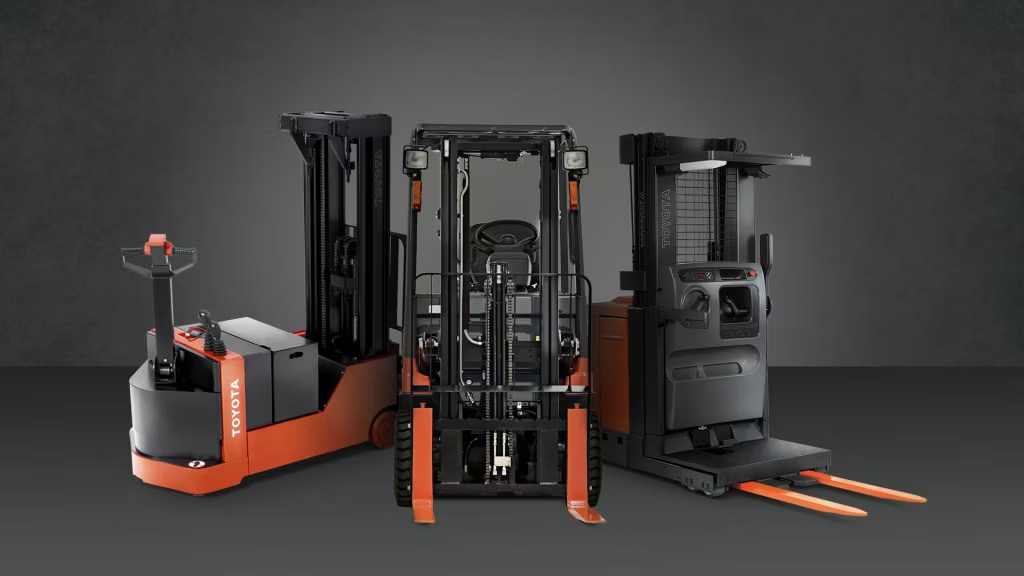
Buying a used forklift can be a bit like buying a used car: it can either be a savvy investment or an expensive mistake. The key is to know what to look for and to go in with a plan. Years ago, a customer of mine, Bill, shared a story that perfectly illustrates this. He found what seemed like a great deal—a low-hour, lightly used Toyota forklift at a small dealer. But once he got it back to his warehouse, he realized the machine had been poorly maintained. It cost him almost as much to repair as a new forklift would have, and by the time everything was sorted out, he wished he’d been more thorough. His experience is a valuable lesson for anyone in the market for a used machine.
One of the most important things to consider when buying a used forklift is its overall condition. Just like cars, forklifts have odometers—in this case, hour meters. The lower the number of operating hours, the better, but it’s not the only factor. I often recommend to my customers to look not just at the hours but also at the age of the machine and its maintenance history. If a forklift is only three years old but has been run hard in a manufacturing environment, it could be more worn out than a ten-year-old machine that’s been used sparingly in a distribution center.
When evaluating used forklifts, take a close look at the maintenance records. Some models, like Caterpillar and Hyster, are known for durability, but even they won’t hold up without proper care. A well-documented service history can tell you a lot about how well the machine has been maintained. For example, I recently had a customer looking at a five-year-old Nissan forklift. On paper, it seemed like a great buy, but when we checked the maintenance records, it became clear that it had missed several crucial services. Red flags like that shouldn’t be ignored.

Every brand and style of forklift has its strengths and weaknesses. Are you looking at a Toyota for its renowned reliability, or perhaps considering a Yale for its user-friendly controls? Maybe a Clark because you’ve heard they’re the “bulldogs” of the forklift world? Each brand has a reputation, but it’s more about choosing the right style for your application. Are you looking at counterbalance forklifts, or do you need a narrow aisle forklift? Are electric forklifts on your radar, or is a diesel or propane model better suited to your needs?
The last customer I helped, a small business owner named Sarah, was in the market for a forklift to move heavy pallets in tight warehouse aisles. She initially wanted a standard counterbalance, but after some discussion, we realized she’d be better off with a Raymond Reach Truck, given its agility in narrow spaces. We found her a lightly used unit that fit her budget perfectly, and she’s been thrilled with the results. If she hadn’t thought through the type of machine she needed, she might have ended up with something that wasn’t as effective for her specific needs.
Whether you’re choosing a used electric forklift or a propane-powered machine, don’t overlook the condition of the key components. Check the tires for excessive wear, examine the mast and lift chains for signs of damage, and test the steering for responsiveness. This is where the details matter—if the forklift has an electric motor, look at the battery. A bad battery can cost thousands to replace, easily turning a good deal into a bad one. One of our regular buyers, Tom, almost bought a heavily discounted Crown Electric Forklift, only to realize the battery was nearly shot. Luckily, he took the time to have it checked, and we were able to help him find a better option.
Don’t forget to pay attention to safety features. Does the forklift have a working back-up alarm and horn? What about a seatbelt? Even seemingly minor issues can be major liabilities. I once saw a Mitsubishi forklift that seemed to be in perfect working order until I noticed that the safety sensors on the mast were disconnected. It turned out the forklift had been in a minor accident, and the quick fix was to disable the sensors. Little things like that can tell you a lot about a machine’s history.
Before committing to buy a used forklift, always test-drive it. I recommend spending at least 20-30 minutes operating it in different scenarios—lifting loads, turning in tight spaces, and driving at varying speeds. It’s amazing how many people skip this step. A few years back, I had a client, Joe, who bought a Komatsu forklift sight unseen because the price was unbeatable. When it arrived, he found out the lift had an issue with its mast hydraulics, making it unstable when raising heavy loads. A quick test-drive would have exposed the issue, saving him a significant headache.
When you test the forklift, listen carefully for any unusual noises. Rattling or grinding can indicate worn parts that need immediate replacement. Test the brakes and see how the machine responds when stopping suddenly. This is especially crucial for heavier models like the Yale Veracitor or Hyster Fortis series, which are designed for heavy-duty operations. Any hesitation or strange behavior should be a red flag.
Don’t just go for the cheapest option; instead, think about the long-term cost of ownership. A lower upfront cost might be tempting, but if you end up with a forklift that needs major repairs, it’s no bargain. I’ve seen businesses make the mistake of choosing the absolute lowest price, only to regret it later. A customer once bought a used Doosan forklift for a fraction of what a new one would cost, but within a few months, the transmission failed. The repair bill was astronomical.
When you’re comparing prices, take into account factors like the brand’s reputation, the availability of parts, and the dealer’s warranty, if any. A well-maintained Toyota or Caterpillar might cost a bit more, but they’re known to last longer and have better resale value. You want to buy a forklift that won’t just get the job done today but will keep your business running smoothly for years to come.

December 18,2024


December 15,2024

December 15,2024

December 14,2024

The largest network of forklift dealers in the US and Canada is at your fingertips. Get the best pricing nationwide now on renting or buying a forklift
Get the lowest prices from our forklift dealers near you.